19 Famous Paradoxes And Thought Experiments That Will Melt Your Brain!
A paradox is a statement or problem that either appears to produce two entirely contradictory (yet possible) outcomes, or provides proof for something that goes against what we expect. Paradoxes and thought experiments have always been a central part of philosophical thinking and are always ready to challenge our interpretation of otherwise simple situations.
Below you’ll find a list of 19 of the most famous paradoxes and some other thought experiments that kept many minds busy for years, and some of them even for centuries!
19. This question was first posed By Raymond Johnson on Google+
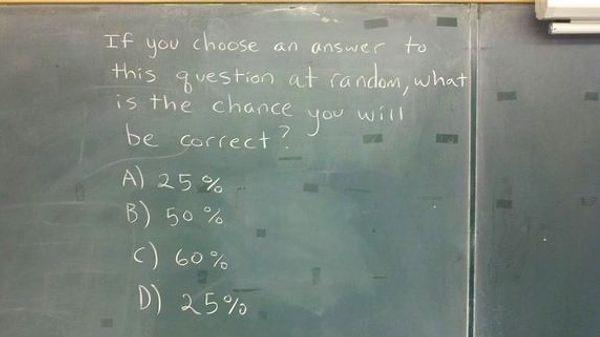
You haven't seen anything yet.
Keep scrolling...
18. Molyneux's problem

The question Molyneux asked was whether a man who has been born blind and who has learnt to distinguish and name a globe and a cube by touch, would be able to distinguish and name these objects simply by sight, once he had been enabled to see.
17. Derek Parfit's question on personal identity
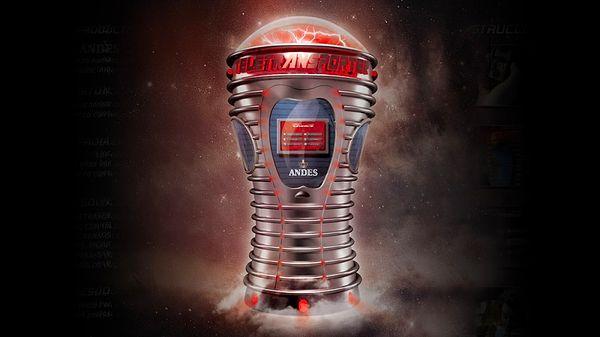
Parfit asks the reader to imagine entering a 'teletransporter,' a machine that puts you to sleep, then destroys you, breaking you down into atoms, copying the information and relaying it to Mars at the speed of light. On Mars, another machine re-creates you (from local stores of carbon, hydrogen, and so on), each atom in exactly the same relative position. Parfit poses the question of whether or not the teletransporter is a method of travel—is the person on Mars the same person as the person who entered the teletransporter on Earth?
16. Gettier problem: 'The cow in the field'

A farmer is worried his prize cow has wandered off. When the milkman comes to the farm, he tells the farmer not to worry, because he’s seen that the cow is in a nearby field. Though he’s nearly sure the man is right, the farmer takes a look for himself, sees the familiar black and white shape of his cow, and is satisfied that he knows the cow is there. Later on, the milkman drops by the field to double-check. The cow is indeed there, but it’s hidden in a grove of trees. There is also a large sheet of black and white paper caught in a tree, and it is obvious that the farmer mistook it for his cow. The question, then: even though the cow was in the field, was the farmer correct when he said he knew it was there?”
15. Crocodile dilemma

A crocodile, who has stolen a child, promises the father/mother that their child will be returned if and only if they correctly predict what the crocodile will do next.
What should the parent say?
14. Paradox of thrift

The paradox states that an increase in autonomous saving leads to a decrease inaggregate demand and thus a decrease in gross output which will in turn lower total saving. The paradox is, narrowly speaking, that total saving may fall because of individuals' attempts to increase their saving, and, broadly speaking, that increase in saving may be harmful to an economy. Both the narrow and broad claims are paradoxical within the assumption underlying the fallacy of composition, namely that what is true of the parts must be true of the whole. The narrow claim transparently contradicts this assumption, and the broad one does so by implication, because while individual thrift is generally averred to be good for the economy, the paradox of thrift holds that collective thrift may be bad for the economy.
13. Epimenides paradox
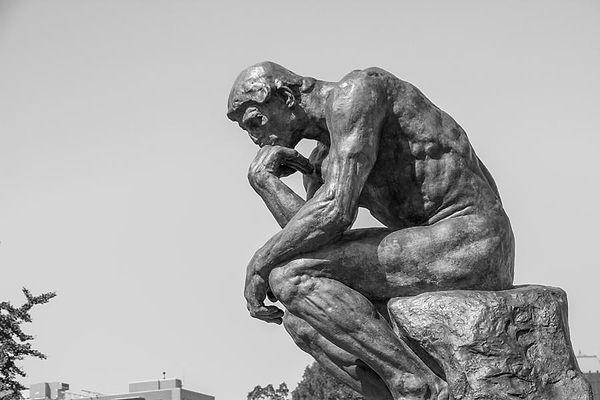
The paradox is as follows: Epimenides the Cretan says, 'that all the Cretans are liars,' but Epimenides is himself a Cretan; therefore he is himself a liar. But if he be a liar, what he says is untrue, and consequently the Cretans are veracious; but Epimenides is a Cretan, and therefore what he says is true; saying the Cretans are liars, Epimenides is himself a liar, and what he says is untrue. Thus we may go on alternately proving that Epimenides and the Cretans are truthful and untruthful.
12. Ladder paradox
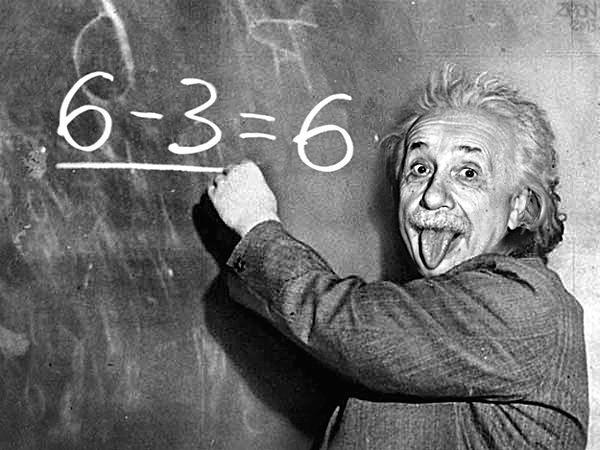
The ladder paradox involves a ladder, parallel to the ground, travelling horizontally and therefore undergoing a Lorentz length contraction. As a result, the ladder fits inside a garage which would normally be too small to contain it. On the other hand, from the point of view of an observer moving with the ladder, it is the garage that is moving, so it is the garage which will be contracted to an even smaller size, thus being unable to contain the ladder.
11. Trolley problem

There is a runaway trolley barreling down the railway tracks. Ahead, on the tracks, there are five people tied up and unable to move. The trolley is headed straight for them. You are standing some distance off in the train yard, next to a lever. If you pull this lever, the trolley will switch to a different set of tracks. However, you notice that there is one person on the side track. You have two options: (1) Do nothing, and the trolley kills the five people on the main track. (2) Pull the lever, diverting the trolley onto the side track where it will kill one person. Which is the most ethical choice?
10. Causal loop
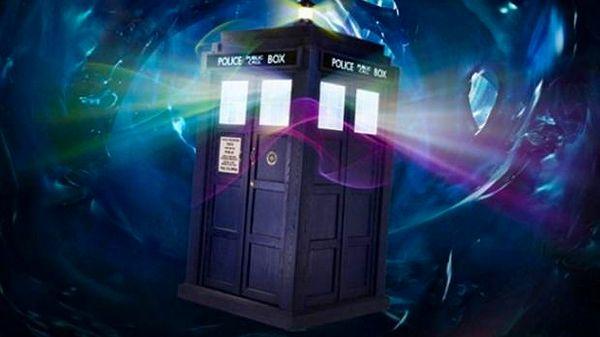
A time-traveler copies Beethoven's music from the future and publishes it in Beethoven's time in Beethoven's name. Who is the composer?
9. Zeno's paradox - "Achilles and the Tortoise"
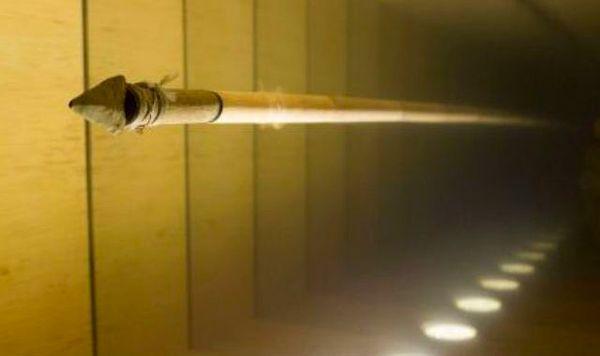
In a race, the quickest runner can never overtake the slowest, since the pursuer must first reach the point whence the pursue started, so that the slower must always hold a lead.
8. The Atomic Theory of Lucretius

Can we say that there is 'free will' if the atoms in our brain are always behaving in an expected way?
7. Paradox of the Court

The famous sophist Protagoras took on a pupil, Euathlus, on the understanding that the student pay Protagoras for his instruction after he wins his first court case. After instruction, Euathlus decided to not enter the profession of law, and Protagoras decided to sue Euathlus for the amount owed.
Protagoras argued that if he won the case he would be paid his money. If Euathlus won the case, Protagoras would still be paid according to the original contract, because Euathlus would have won his first case.
Euathlus, however, claimed that if he won, then by the court's decision he would not have to pay Protagoras. If, on the other hand, Protagoras won, then Euathlus would still not have won a case and would therefore not be obliged to pay.
The question is: which of the two men is in the right?
6. Archytas' Thought Experiment

Suppose that space were finite. Then one could go to the boundary of space and extend one’s staff beyond it. The conclusion is that the universe must be infinite.
But what really happens if one extends one’s staff beyond the boundary?
5. Mary the super-scientist (Knowledge argument)
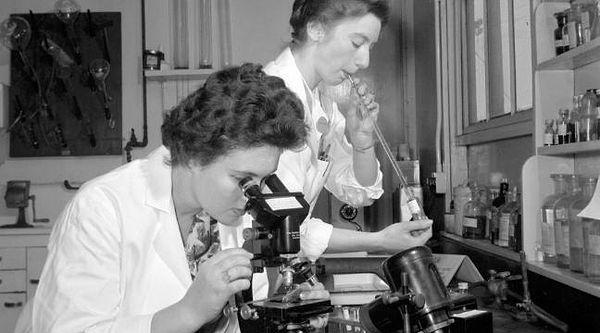
Mary lives her entire life in a room devoid of color—she has never directly experienced colour in her entire life, though she is capable of it. Through black-and-white books and other media, she is educated on neuroscience to the point where she becomes an expert on the subject. Mary learns everything there is to know about the perception of color in the brain, as well as the physical facts about how light works in order to create the different color wavelengths. It can be said that Mary is aware of all physical facts about color and color perception.
After Mary’s studies on color perception in the brain are complete, she exits the room and experiences, for the very first time, direct color perception. She sees the color red for the very first time, and learns something new about it — namely, what red looks like.
If physicalism is true, Mary ought to have gained total knowledge about color perception by examining the physical world. But since there is something she learns when she leaves the room, then physicalism must be false.
4. Olbers' paradox

The darkness of the night sky conflicts with the assumption of an infinite and eternal static universe. The darkness of the night sky is one of the pieces of evidence for a dynamic universe, such as the Big Bang model. If the universe is static, homogeneous at a large scale, and populated by an infinite number of stars, any sight line from Earth must end at the (very bright) surface of a star, so the night sky should be completely bright. This contradicts the observed darkness of the night.
3. Avicenna's question

If a person were created in a perfect state, but blind and suspended in the air and unable to perceive anything through their senses, would they be able to affirm the existence of their self?
2. Theseus' paradox

The Ship of Theseus was rebuilt over the centuries as wood rotted and broke, so at what point did it stop being the original, and when did it become something else?
1. A fictional murder case: Ronald Opus

On March 23 the medical examiner viewed the body of Ronald Opus and concluded that he died from a gunshot wound of the head caused by a shotgun. Investigation to that point had revealed that the decedent had jumped from the top of a ten story building with the intent to commit suicide. (He left a note indicating his despondency.) As he passed the 9th floor on the way down, his life was interrupted by a shotgun blast through a window, killing him instantly. Neither the shooter nor the decedent was aware that a safety net had been erected at the 8th floor level to protect some window washers, and that the decedent would not have been able to complete his intent to commit suicide because of this.
Ordinarily, a person who starts into motion the events with a suicide intent ultimately commits suicide even though the mechanism might be not what he intended. That he was shot on the way to certain death nine stories below probably would not change his mode of death from suicide to homicide, but the fact that his suicide intent would not have been achieved under any circumstance caused the medical examiner to feel that he had homicide on his hands.
Further investigation led to the discovery that the room on the 9th floor from whence the shotgun blast emanated was occupied by an elderly man and his wife. He was threatening her with the shotgun because of an interspousal spat and became so upset that he could not hold the shotgun straight. Therefore, when he pulled the trigger, he completely missed his wife, and the pellets went through the window, striking the decedent.
When one intends to kill subject A, but kills subject B in the attempt, one is guilty of the murder of subject B. The old man was confronted with this conclusion, but both he and his wife were adamant in stating that neither knew that the shotgun was loaded. It was the longtime habit of the old man to threaten his wife with an unloaded shotgun. He had no intent of murdering her; therefore, the killing of the decedent appeared then to be accident. That is, the gun had been accidentally loaded.
But further investigation turned up a witness that their son was seen loading the shotgun approximately six weeks prior to the fatal accident. That investigation showed that the mother (the old lady) had cut off her son's financial support, and her son, knowing the propensity of his father to use the shotgun threateningly, loaded the gun with the expectation that the father would shoot his mother. The case now becomes one of murder on the part of the son for the death of Ronald Opus.
Further investigation revealed that the son became increasingly despondent over the failure of his attempt to get his mother murdered. This led him to jump off the ten story building on March 23, only to be killed by a shotgun blast through a 9th story window.
How do you think that the case should be closed?
Keşfet ile ziyaret ettiğin tüm kategorileri tek akışta gör!


Send Comment